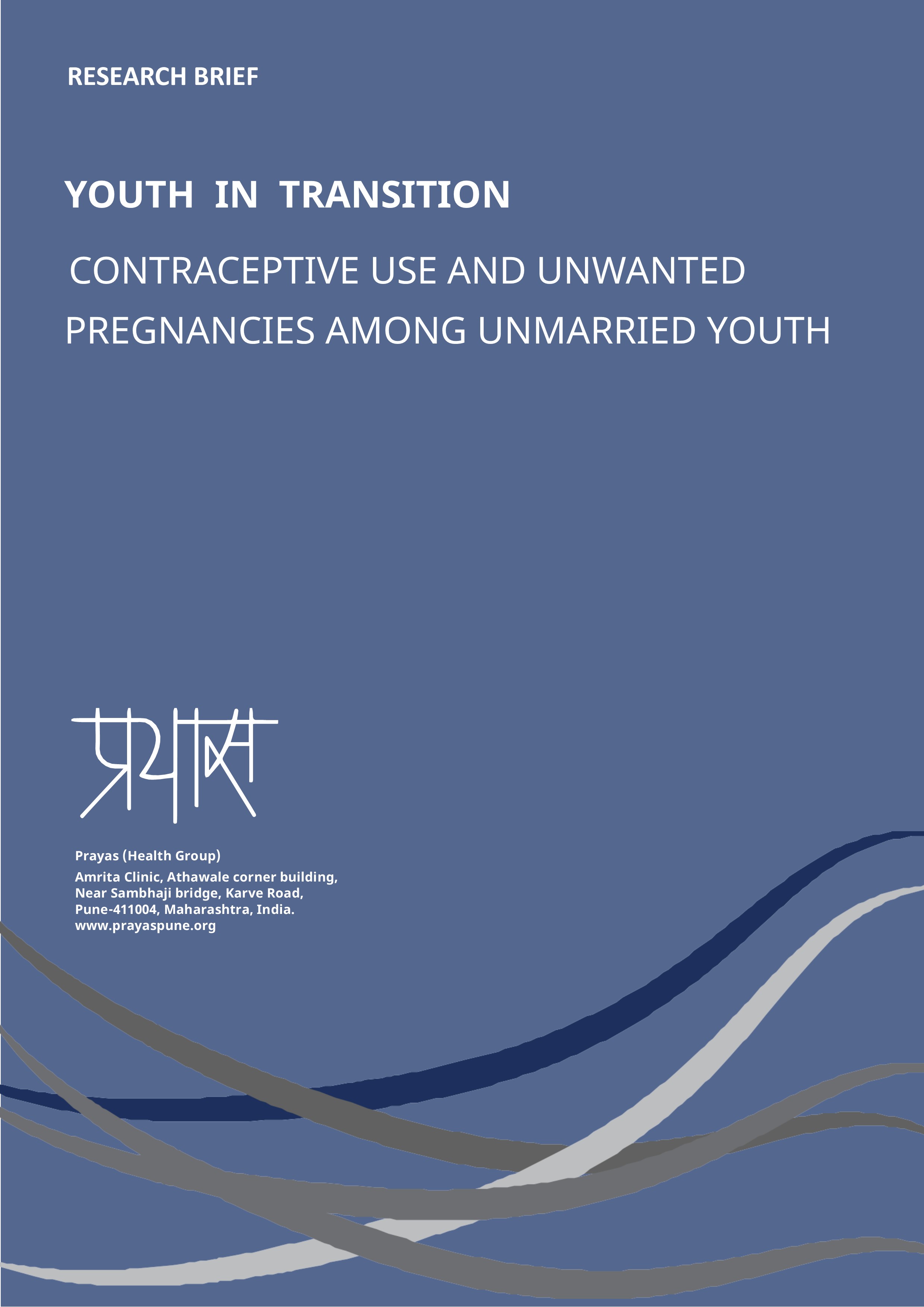The evidence from many developing countries including India suggests that young women have high levels of unmet need for contraception. Compared to married women, the unmet need for contraception is higher among the unmarried. The context of secrecy and stigma surrounding sexual behaviour in unmarried women significantly affects access to contraception. This research brief describe the patterns of contraceptive use – both traditional and modern - among unmarried youth. It also looks at pregnancy incidence and experiences of seeking abortion care. This research brief is based on the data on 1240 unmarried young adults participated in the Youth in Transition Study.
The Youth in Transition study adopted the life course approach to understand the dynamic process of decision-making of young people. Adopting an innovative approach of collecting information using a relationship history calendar and narrative interview technique, the data collected from 1240 young adults provide important insights about the sexual health needs of this population. Based on the analysis several policy and program implications are described in the report.


